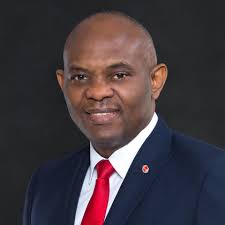Tony Elumelu, chairman and founder of Heirs Holdings, says Nigeria would be unable to keep its investors and entrepreneurs if the issue of multiple taxation is not abolished.
The billionaire noted that the average Nigerian business pays 48 taxes.
Delivering the keynote address at the 21st annual tax conference of the Chartered Institute of Taxation of Nigeria (CITN), Elumelu said the country needs far-reaching tax reforms and an urgent need to pass the executive tax bill.
Describing the plight of the average Nigerian entrepreneur, Elumelu said the average business is a local government authority providing his own electricity, water and waste disposal method.
He said the government can make life easier by creating favourable tax policies that support SMEs.
“Until there is a reduction in what SMEs pay as tax, elimination of multiple taxation, the abolition of minimum income tax and excess dividend tax, it will be difficult for us to attract investors into this country, and it will be difficult for us to retain the ones already in the country. It will be difficult for us to mobilise our SMEs to help create employment that we need so much in this country,” he said.
“The average number of taxes businesses pay in Nigeria is 48, compared to 33 in other Sub-Saharan countries. In Hong Kong, it’s just 3. Multiple taxation remains a significant burden for SMEs and corporates operating in the country.
“With a population of close to 200 million people in Nigeria, we have only 75,000 registered SMEs in the country. No one needs to tell us that people are avoiding tax or refusing to be a part of the system.”
According to the Heirs Holdings chairman, increase the tax to GDP ratio from its current six percent to 16% will amount to an additional $40 billion in government revenue, which is similar to the size of the nation’s foreign reserves.
“Government should drive mass mobilisation of citizens – let citizens know why they need to pay taxes and give them the assurance that their tax will be properly utilised,” he said.
“Government should employ the use of smart tax incentives to attract and incentivise local and foreign investors.
“Nigeria has 14 taxation treaties while a country like South Africa has 79 double taxation treaties, and we are the largest economy in Africa. Our embassies should adopt a target in the next two years to sign tax treaties with our top 100 trading partners in the world.”
Also present at the event were Ikemefuna Nwobodo, president, Chartered Institute of Taxation in Nigeria; Mahmud Isa-Dutse, permanent secretary at the ministry of finance, and Babatunde Fowler, executive chairman of the Federal Internal Revenue Service.


